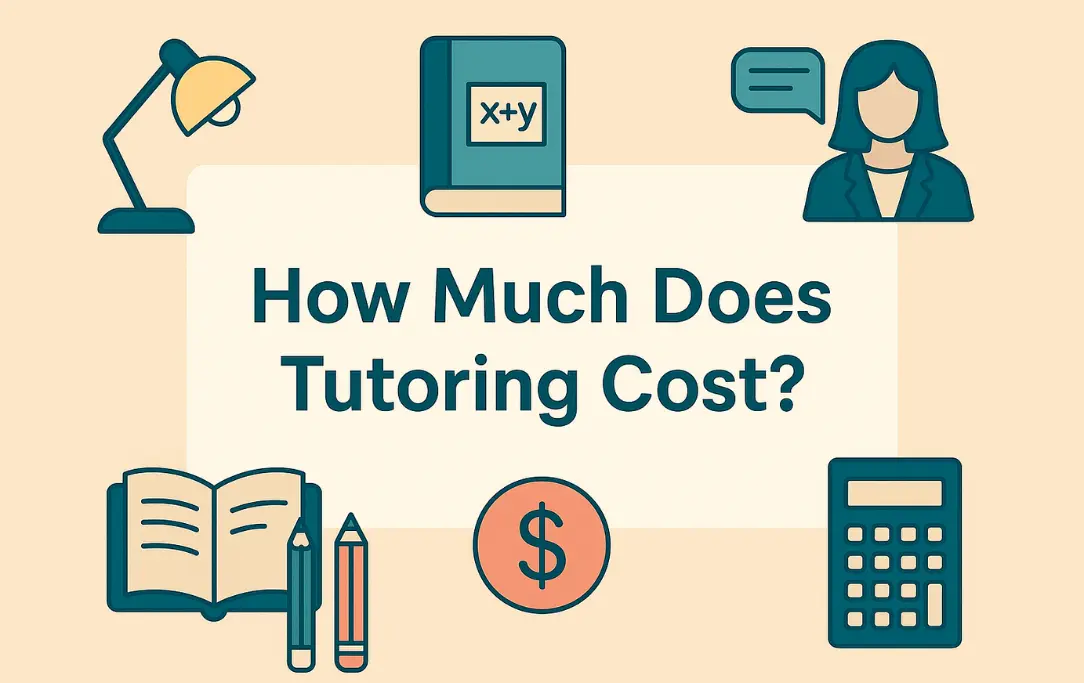How Much Does Tutoring Cost? Full Pricing Guide

Tutoring has become a cornerstone of academic success for students of all ages, offering personalized support to bridge learning gaps, prepare for standardized tests, or master challenging subjects. However, the cost of tutoring varies widely, leaving many families wondering: How much should I expect to pay? This guide breaks down tutoring costs, explores factors that influence pricing, and offers actionable tips to find tutors in affordable options.
Download the App Now on Play Store If you are also looking for the Tutors
Stay connected, stay informed, stay ahead with this app!
Key Factors That Influence Tutoring Costs
The price of tutoring depends on several variables, including the tutor’s qualifications, the subject’s complexity, and the format of sessions. Here’s a closer look at what drives tutoring fees:
Type of Tutoring Service
Private Tutors:
One-on-one sessions with a dedicated tutor typically range from $25 to $300 per hour, with higher rates for advanced subjects like calculus or test prep. Experienced private tutors or specialists often charge over $100/hour.
Online Tutoring:
Virtual sessions are generally cheaper, averaging $15–$75 per hour due to reduced overhead costs. Platforms like Tutor.com or Skooli offer packages starting at $29/hour.
Tutoring Centers:
Programs like Kumon or Mathnasium charge $150–$1,200 monthly, depending on session frequency and program structure.
Subject and Grade Level
Math and Science:
These subjects command higher rates due to their complexity. For example, math tutoring averages $40/hour but can exceed $100/hour for college-level calculus. Science tutoring, particularly physics or chemistry, ranges from $27–$75/hour.
Standardized Test Prep:
SAT or ACT tutoring costs $45–$150/hour, reflecting the specialized strategies required.
Languages:
Spanish or French tutoring averages $27/hour, while less common languages like Mandarin or Japanese can cost $60–$75/hour.
Tutor Qualifications
Experience:
Entry-level tutors (e.g., college students) may charge $20–$40/hour, while certified teachers or PhD holders often charge $50–$150/hour.
Credentials:
Tutors with advanced degrees or specialized certifications (e.g., SAT/ACT experts) justify higher rates.
Location
Urban areas like Los Angeles or New York have higher rates due to demand and living costs. For example, in-person math tutoring averages $23/hour in Los Angeles but $25/hour in New York. Rural areas often see rates 20–30% lower.
Session Frequency and Duration
Longer or recurring sessions may reduce hourly rates. Many tutors offer discounts for bulk packages (e.g., 10 sessions for $400).
Average Tutoring Rates by Category
To help you budget, here’s a breakdown of average tutoring costs across common subjects and formats:
| Service Type | Average Hourly Rate | Key Considerations |
|---|---|---|
| Private Math Tutor | $40–$100 | Higher for AP/college-level courses |
| Online English Tutor | $25–$50 | Cheaper for conversational vs. academic writing |
| SAT/ACT Prep | $60–$150 | Includes practice tests and strategy sessions |
| Language Tutoring | $25–$75 | Mandarin, Japanese, and Korean at premium rates |
| Science Tutoring | $30–$80 | Lab-based subjects (e.g., biology) cost more |
| Learning Centers | $150–$400/month | Structured programs with group discounts |
How to Find Affordable Tutoring Options
While tutoring can strain budgets, these strategies help reduce costs without compromising quality:
Opt for Online Tutoring
Virtual sessions eliminate travel expenses and offer access to tutors in lower-cost regions. Platforms like OurEasyGame, iTutor or Wyzant provide certified teachers at $30–$60/hour, often cheaper than in-person alternatives.
Leverage Group Sessions
Small-group tutoring splits costs among participants. For example, a $75/hour session shared by three students drops the per-student cost to $25/hour.
Negotiate Package Deals
Many tutors offer discounts for upfront payments. A 10-session package might reduce hourly rates by 10–20%.
Hire College Students or Entry-Level Tutors
Undergraduates or recent graduates often charge $20–$40/hour for foundational subjects like elementary math or English.
Use Free or Low-Cost Resources
Nonprofits, libraries, and school-sponsored programs sometimes offer subsidized tutoring. For example, LearnToBe provides free online tutoring for K–12 students.
Case Study: Varsity Tutors and Other Popular Services
Varsity Tutors, a leading online platform, charges $50–$100/hour for one-on-one sessions, with test prep packages ranging from $200–$2,000. While pricier than competitors, they guarantee certified instructors and customized lesson plans.
Comparatively, Mathnasium centers charge $19–$62/hour for small-group math tutoring, emphasizing long-term skill-building over quick fixes.
The Hidden Costs of Tutoring
Beyond hourly rates, consider additional expenses:
Materials: Workbooks or online tools may cost $10–$50/month.
Cancellation Fees: Some tutors charge 50–100% for last-minute cancellations.
Travel Fees: In-person tutors may add $5–$20/session for transportation.
Is Tutoring Worth the Investment?
Studies show tutoring significantly improves grades, test scores, and academic confidence. For example, students with regular math tutoring often see 20–30% grade increases within a semester. While costs can add up, the long-term benefits—college readiness, scholarships, and career opportunities—often justify the expense.
Download the App Now on App Store If you are also looking for the Tutors
Stay connected, stay informed, stay ahead with this app!
Final Thoughts: Embrace the Journey
Tutoring costs are highly variable, but understanding the factors behind pricing empowers families to make informed decisions. Whether opting for a $25/hour online tutor or investing in a $1,200/month learning center, prioritize services that align with your child’s needs and learning style. By exploring discounts, group rates, and virtual options, you can secure quality academic support without overspending.
For more personalized estimates, consult local tutors or platforms like Wyzant or Care.com, which provide rate comparisons based on your location and subject requirements.
A: Private tutors typically charge between $25 to $100 per hour, depending on their experience, subject matter, and location. Rates may go higher for test prep or specialized subjects.
A: Yes, online tutoring is usually more affordable, with rates ranging from $15 to $75 per hour. Virtual sessions also eliminate travel costs and offer flexible scheduling.
A: SAT/ACT tutoring ranges from $60 to $150 per hour, depending on the tutor’s expertise and whether prep materials or mock tests are included.
A: Tutoring rates vary based on subject difficulty, grade level, tutor qualifications, location, session format, and frequency of lessons.
A: Yes, you can find free or low-cost tutoring through nonprofits, libraries, schools, and online platforms like LearnToBe. Group sessions also reduce costs.
A: Many tutors offer discounted package deals for multiple sessions. Don’t hesitate to ask about bulk pricing or group rates.
A: Learning centers usually charge $150 to $1,200 per month, depending on the number of sessions and program type.
A: Yes. Tutoring often leads to higher grades, better test scores, and increased academic confidence, making it a valuable long-term investment.











